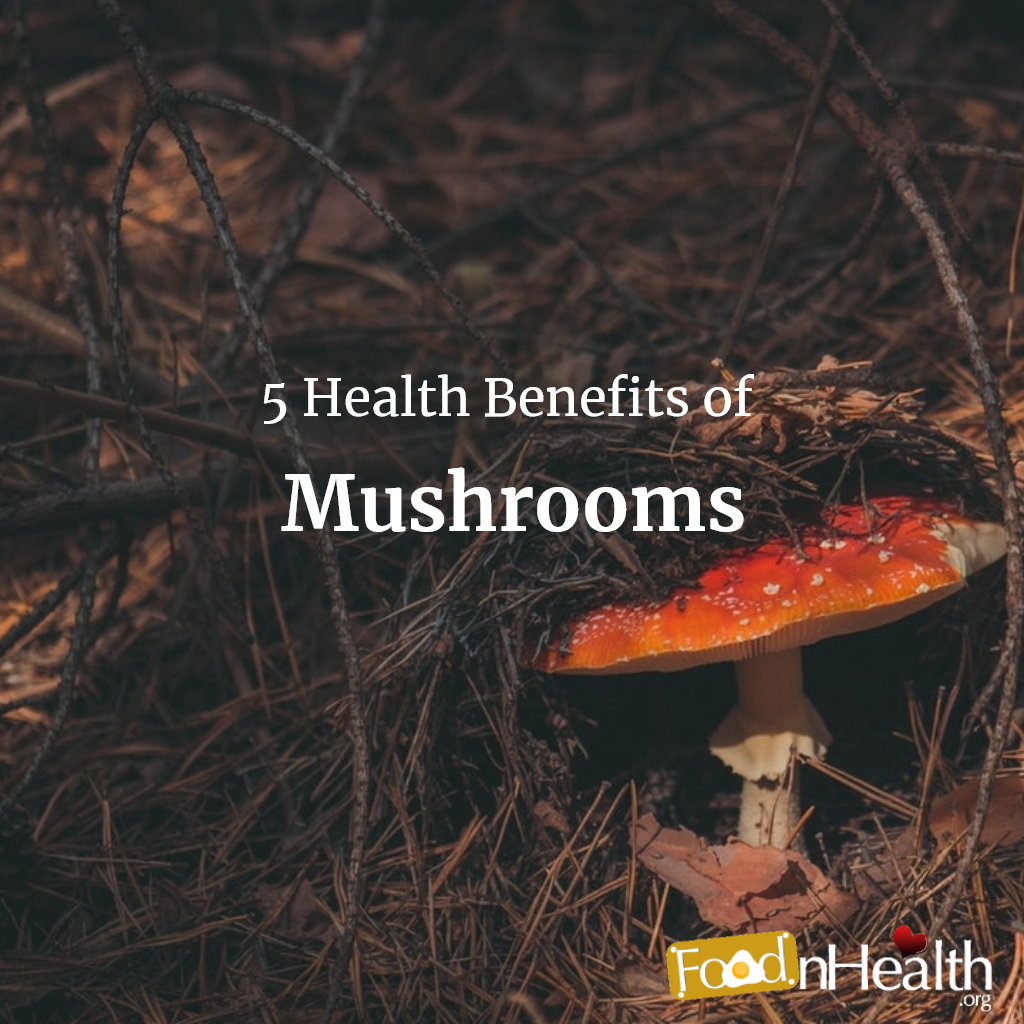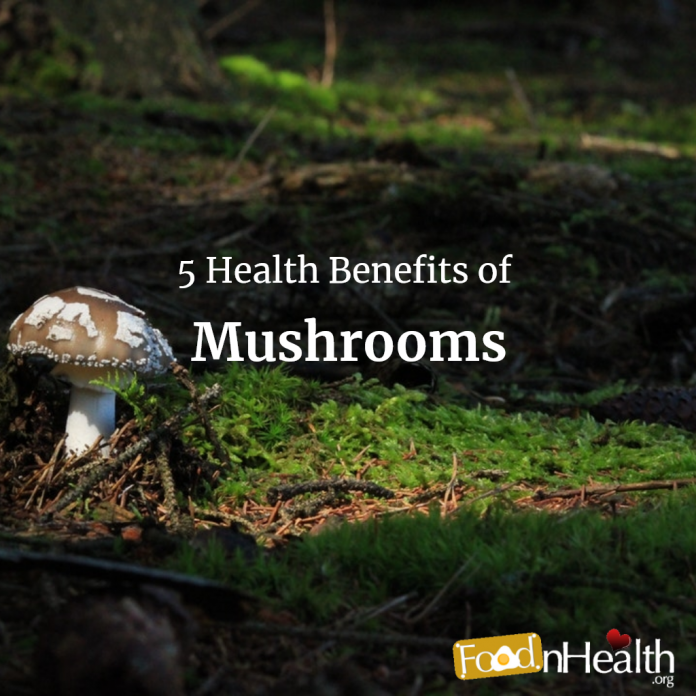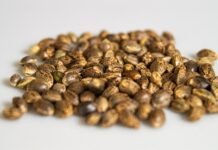Mushrooms are edible fungi that belong to family Agaricus. They are saprophytes and are known to thrive by simply extracting nutrients for growth and development from the dead and decaying animal and plant matter. They also vary greatly in shape, color, texture, and properties. There are also numerous species of mushrooms across the world at approximately 140,000 species although scientific studies are only familiar with about 10%. Mushrooms have some health benefits to the body of an individual as shown by the numerous studies that have been undertaken over the past years. Below are five health benefits of Mushrooms:
1. Prevention of diabetes
Mushrooms are known to be low energy diets for diabetics. They have no fats and cholesterol, low levels of carbohydrates, many vitamins and minerals, and also high protein content. Mushrooms also have a lot of water and fiber. They also contain natural enzymes and insulin which helps in the process of breaking down of sugar or starch in food.
Moreover, mushrooms are also known to have some compounds that help in proper functioning of the pancreas, liver, as well as other endocrine glands and thereby enhancing the formation of insulin and properly regulating it throughout the body. In most cases, diabetics do suffer from certain infections and particularly in the limbs and tend to take a very long time. Mushrooms have natural antibiotics that protect the diabetics from all these potentially and painful life-threatening conditions.
2. Boosting the immune system
Mushrooms have a very powerful antioxidant known as Ergothioneine that is very effective in the provision of protection from free radicals and giving a boost to the immune system. This antioxidant is an amino acid which contains sulfur that many people have the deficit in. Ergothioneine plays the role of eliminating free radicals, which are harmful compounds that are released during the process of metabolism in the cells and can float in the entire body and bring significant damage as well as diseases.
Mushrooms also contain some natural antibiotics that are similar to penicillin which inhibits microbial growth and other fungal infections. These same beta-glucans, polysaccharides, can regulate and stimulate the body’s immune system. They can also help in healing ulcers and ulcerous wounds and provide protection to them to prevent infections. The presence of vitamins A, B-complex and C in mushrooms also strengthens the body’s immune system.
3. Preventing cancer
Mushrooms are also known to effectively prevent both breast and prostate cancer due to the presence of Conjugated Linoleic Acid and Beta-Glucans, which have anti-carcinogenic effects. Linoleic Acid is majorly helpful in suppressing the dangerous effects of excess estrogen in the body. The increased levels of estrogen are a major cause of breast cancer in most women after menopause. On the other hand, Beta-Glucans play the role of inhibiting the growth of cancerous cells majorly in cases of prostate cancer.
In a study published in 2015, the white button mushrooms that are commonly found in grocery stores, as well as salad bars, can suppress prostate cancer. Other mushroom varieties such as the shiitake mushrooms contain lentinan which is a type of sugar molecule that helps in extending the survival period of cancer patients when used with chemotherapy. Lentinan does not kill the cancer cells directly, but rather it enhances the immune system and thus promotes a slow growth of the tumors. Also, the vitamin D contained in mushrooms helps in inhibiting the growth of cancer cells by regulating the cell growth cycle. By simply placing a freshly cut mushroom in the sun significantly increases the content of vitamin D. The folate found in mushrooms plays a significant role in DNA synthesis and repair and thus preventing the formation of these dangerous cells from a mutation in the DNA.
4. Lowering blood pressure
Many studies that have been carried out on mushrooms show that some varieties of mushrooms such as shiitake and maitake have a high content of potassium. Potassium acts as a vasodilator in blood vessels and therefore decreasing blood pressure. High blood pressure in people is majorly connected to some deadly conditions such as strokes and heart attacks. Potassium is also known to increase the cognitive function because increased blood and oxygen flow to an individual’s brain stimulates neural activity.
The bioactive components of mushrooms tend to possess antihypertensive properties. The prospect of inhibiting ACE and targeting the RAAS seems to be an effective strategy to lower blood pressure, and it’s exciting that the triterpenoids and proteins in various mushroom varieties may impact this biochemical system.
5. Lowering cholesterol
Mushrooms provide the body with lean proteins since they lack fat or cholesterol and also have low levels of carbohydrates. They also have certain enzymes and fiber that help in lowering the cholesterol levels. Also, the presence of a high content of lean protein helps in burning cholesterol when they are taken and digested. The balancing levels of cholesterol between HDL cholesterol and LDL cholesterol is very vital in the prevention of some cardiovascular diseases such as heart attack, atherosclerosis, and stroke.
Mushrooms also contain a high level of water-soluble fiber known as beta-glucans. Bile acids have some cholesterol derivatives as shown in some studies. Beta-glucans increases bile viscosity inside the intestines and reduces reabsorption of cholesterol derivatives. It is important that individuals understand that lowering cholesterol is not made for everybody. Consuming mushrooms will help in lowering LDL and increasing HDL levels in the body.

Conclusion
These are some of the health benefits of mushrooms. There are other health benefits such as treating anemia, improving bone health, assisting nutrient absorption and weight loss among others. These health benefits of mushrooms have been identified after some research studies on mushrooms. An individual can grow mushrooms at home for consumption with ease provided that he or she understands all requirements and the variety of mushroom to grow. Look for the edible varieties and follow the appropriate procedure to ensure that you raise your own mushrooms at home and cut the costs of buying from grocery stores and other places.


























